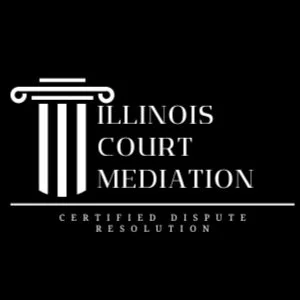Learn More
About Mediation
Mediation is a widely used alternative dispute resolution method in legal conflicts. In this process, the parties involved meet to discuss their issues and work towards a mutual resolution. A third-party mediator facilitates these discussions, helping the parties identify and address the various issues that need resolution.
Types of Mediation
Generally speaking, mediation is either VOLUNTARY or COURT-ORDERED.
Voluntary mediation occurs before a court case is filed when parties choose to resolve their disputes using the process. Parties can work with a mediator to agree without legal representation. An agreement does not become binding until it is approved and signed by both parties to a dispute. Voluntary mediation could be helpful for those separating from a partner with shared assets, resolving a dispute with business partners about the future or dissolution of a business, and landlords and tenants facing the eviction process.
Court-ordered mediation is often mandated in divorce and parenting cases involving children to resolve issues such as parental responsibility allocation, parenting time, and relocation. The court may also require mediation for financial matters related to a divorce and other legal issues. Parties involved with court-ordered mediation usually choose their mediator, which they agree on. If parties cannot choose their mediator, the court typically selects someone from the list of court-certified mediators.
WHY MEDIATION?
There are several benefits to using mediation for dispute resolution:
COST SAVINGS: Using mediation to resolve disputes can save parties significant amounts of money on court costs and legal fees.
POTENTIAL TIME SAVINGS: Mediation is shorter than a court proceeding. Most disputes can be resolved in one to three sessions.
CONFIDENTIALITY: The mediation process is private and confidential. Nothing said during the sessions appears on the court record, allowing parties to discuss differences without fear of them being weaponized against them.
FLEXIBILITY & CONTROL: Mediation is more flexible because the court is not involved. Thus, parties can reach more creative solutions that fit their specific needs.
AMICABLE RESOLUTIONS: The mediation process creates an environment in which resolutions can be developed amicably and important relationships preserved.
CONVENIENT: Mediation sessions can be in-person or remote via video meeting. Mediation parties decide the best venue for the mediation prior to the mediation.
Is Mediation Right for Me?
While the mediator oversees the process, the outcome is entirely up to the parties. There is no obligation for the parties to reach a resolution during mediation. Mediation, however, is quite incentivized because if the dispute is not resolved through mediation, it goes to court, which becomes much more expensive for everyone.
Mediation can be used for virtually any type of dispute. The most common uses of mediation are:
Family Law Mediation
Divorce Mediation
Child Custody & Parenting Time Mediation
Eviction Mediation
Estate Mediation

